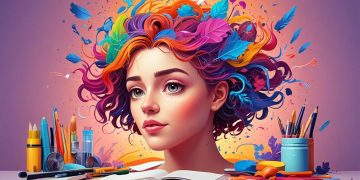
The importance of regular practice in developing creative skills through hobbies
Regular practice is essential for developing creative skills through hobbies, enhancing technical abilities and fostering personal expression. Engaging consistently in artistic pursuits not only boosts confidence and mental well-being but also strengthens community connections, creating a collaborative environment that encourages shared inspiration and growth.

How learning new artistic skills can improve mental health and well-being
Engaging in new artistic skills enhances mental health and well-being by fostering emotional resilience, self-expression, and cognitive growth. Creative pursuits reduce stress, improve social connections, and boost self-esteem, promoting overall happiness and personal fulfillment. Embracing art as a therapeutic outlet paves the way for a healthier, more balanced life.

Developing Social Skills Through Creative Hobby Groups: The Power of Collaboration
Creative hobby groups enhance social skills by fostering collaboration, communication, and community connections. Participants build confidence, develop teamwork abilities, and form lasting friendships through shared artistic experiences. These environments not only nurture creativity but also promote personal growth and strengthen social bonds, making them vital for individual and community development.

Creative hobbies as a way to develop personal marketing skills and self-promotion
Engaging in creative hobbies significantly enhances personal marketing skills and self-promotion. Activities like photography, writing, and digital art foster essential skills, facilitate networking opportunities, and build unique personal brands, positioning individuals for success in a competitive job market through authentic expression and compelling narratives.

The impact of creative hobbies on emotional intelligence development
Creative hobbies significantly enhance emotional intelligence by fostering self-awareness, empathy, and social connections. Engaging in artistic activities like painting, writing, or performing cultivates essential emotional skills, providing therapeutic outlets for stress management while promoting interpersonal relationships, ultimately leading to a more empathetic and resilient society.

The relationship between creative hobbies and the improvement of organizational and planning skills
Engaging in creative hobbies significantly enhances organizational and planning skills. Activities like painting, crafting, and writing foster project management, resource allocation, and problem-solving abilities. This blend of creativity and structure not only enriches personal fulfillment but also cultivates vital skills relevant in professional settings, driving personal and career growth.

How creative hobbies can improve problem-solving and critical thinking
Engaging in creative hobbies boosts problem-solving and critical thinking skills by stimulating innovative thinking and neuroplasticity. Activities like painting, writing, and playing music foster adaptability, resilience, and mindfulness, enhancing cognitive abilities essential for overcoming challenges in personal and professional environments. Embrace creativity to unlock your potential.

Learning New Artistic Skills: The Relationship Between Creative Hobbies and Neuroplasticity
Engaging in creative hobbies like painting and music enhances neuroplasticity, fostering cognitive growth and emotional resilience. Learning new artistic skills stimulates brain function, improves memory, and promotes innovative problem-solving, ultimately enriching personal well-being. Embracing artistic pursuits can transform lives and unlock the full potential of the mind.

The influence of creative hobbies on the development of effective communication skills
Engaging in creative hobbies significantly enhances effective communication skills by promoting self-expression, collaboration, and active listening. These activities foster emotional intelligence, critical thinking, and resilience, enabling individuals to articulate ideas clearly and connect meaningfully with others in both personal and professional contexts. Embracing creativity is key to improving communication.

The role of creative hobbies in developing strategic thinking skills
Creative hobbies play a crucial role in developing strategic thinking skills by enhancing problem-solving, adaptability, and collaboration. Engaging in activities like painting, writing, and improvisation fosters critical thinking and innovation, equipping individuals to navigate personal and professional challenges effectively. Embracing creativity ultimately unlocks strategic potential for success.